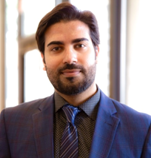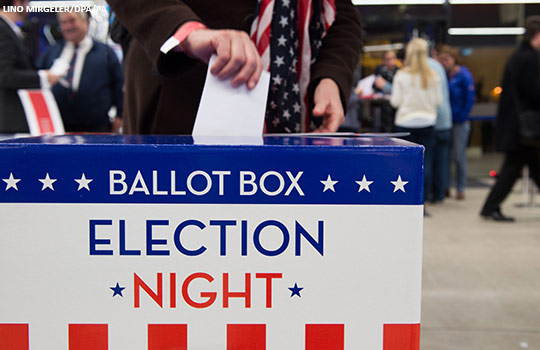
Last week the Republican party’s attempt to “repeal and replace” the Affordable Care Act (ACA) collapsed before promptly being revived again. The new bill, the Better Care Reconciliation Act (BCRA), had previously received a damning evaluation from the bipartisan US Congressional Budget Office (CBO), which estimated that 15 million more people would be uninsured by 2018 under this legislation—a figure they reiterated last week.
The bill was an update to the earlier American Health Care Act (AHCA) that passed the House of Representatives by a narrow margin of 217 votes to 213. And, although the future of this bill is still uncertain, it’s worth exploring why so many legislators would pass a healthcare law that severely restricts citizens’ access to care. For this, we need to consider what influences the actions of representatives in Washington. Undoubtedly, one of the most important factors in their decision making is how people vote and, indeed, who gets to vote. This brings us to an important question: can voting rights be considered a public health issue?
It may not seem immediately intuitive, but I would argue they can. Let me explain. Elected officials and potential political leaders care most about the people who vote. It is these voters and the pressure they exert on their leaders or representatives that help to determine which communities will eventually have access to better grocery stores, health clinics, and low cost health insurance. And so voting rights—just like violence, poverty, and food access—should be viewed as a public health issue.
According to the US Centers for Disease Control and Prevention (CDC), only 25% of a person’s health status is determined by genetics and their biology. It’s the environment we live in, the people we live with, and the food we consume that determine the rest—and access to voting affects all of them.
Just now voting rights in the US are under increased scrutiny; earlier this month a new commission was tasked with compiling public registration data on every voter in the country—a move that alarmed voting right activists. And the Supreme Court also recently ruled that race was taken into consideration to demark voting district boundaries in North Carolina in an attempt to concentrate black voters and undermine their political influence.
The constant legislative threats to the Affordable Care Act, and the consequences these would have in stripping insurance coverage away from millions, are a stark reminder of how voting rights are more important than ever.
Some elected officials did not even try to make a convincing case for the alternatives that would be available for low income citizens who would lose access to healthcare. Arguably, the fact that voter turnout is lower among less affluent, minority voters makes it easier to overlook health access among these more vulnerable populations. A Pew Research Center study shows that non-voting citizens are typically residents with family incomes lower than US $30 000. And a Politico analysis reported that a clear gap exists between voters and non-voters in the US along class lines. In the 2012 election cycle, among those individuals who made more than $150 000, 80.2% voted; while among those who made less than $10 000, only 46.9% voted.
When vulnerable populations are not provided adequate access to voting rights, it directly affects their health and wellbeing. This is particularly true for the African-American community. A comprehensive study reported in the Journal of the American College of Surgeons documented how in the most segregated counties, the higher the African American population is, the more likely it is that they’ll have inadequate access to quality surgical care, depriving them of the essential care that health insurance laws promise. These communities are also less likely to be recipients of quality primary care for common ailments, as reported by the Commonwealth Fund. Several of these concerns were addressed in the reforms introduced by Barack Obama’s Affordable Care Act—the law that came under so much fire during the presidential election.
In the last election cycle, six million citizens were unable to vote because of prior felony convictions, including one in 13 African Americans and yet their access to healthcare was particularly threatened. Since the introduction of the ACA, the uninsured rate among the African American community plummeted from 21% in 2013 to 13% in 2016. The African American population is also disproportionately harmed by harsh voter registration rules and strict voter ID laws. A recent study by Priorities USA, which analyzed swing voters and voter turnout in the 2016 election cycle, reported that the introduction of strict voter ID laws had significantly reduced turnout in the African American community. In Wisconsin, for example, where ID laws became stricter, their analysis revealed that the new laws reduced voter turnout by 200 000 and that these “lost voters tend to skew more African American and more Democrat.”
Another important aspect is the issue of Medicaid expansion. Several analyses demonstrate time and again how opposition to Medicaid expansion harms minorities—particularly Hispanics, African Americans, and single mothers. Yet it is these ethnically and racially diverse communities who have been found to be less likely to vote. Since these communities are often considered “non-voters” in the political lingo, elected representatives are less likely to worry about their medical needs and how Medicaid expansion plans could help them.
Such misguided strategies have severe policy implications as well: lacking access, people avoid seeking care until complications develop. The management of these complications ends up costing more and increases stress on the already fragile health system in the US.
So why am I raising these problems? Because as health practitioners, it is time for us to accept that part of doing our jobs now includes lobbying for the rights of the patients we serve.
When public health advocates demand better voting access for certain populations, we are not asking for special rules or exceptions for them. But we have to make sure that people who are under severe economic or societal pressures are provided with adequate systematic support so that they can exercise their constitutional right to choose their representatives and make their voice heard. It means creating channels for minority voters to cast their ballots. It means making sure that they too have a voice in the legislative process so that when new laws are proposed or when old ones are debated, representatives pay attention to not just the wealthy donors, but also to those who are severely affected by these policies.
It is our duty not just as clinicians and public health advocates to promote these rights, but as citizens to make sure that our fellow citizens’ voices are heard—loud and clear.
For those of us who are concerned about keeping people healthy, our work must go beyond just routine check-ups and writing prescriptions. We too must work to ensure that the people who need healthcare the most are also able to have a say. Our patients’ health depends on it.
Junaid Nabi is a physician, non-profit executive, and medical journalist. He is a post-doctoral researcher in surgical health services at Brigham and Women’s Hospital and Harvard Medical School. Twitter @JunaidNabiMD
Competing interests: None to declare.
